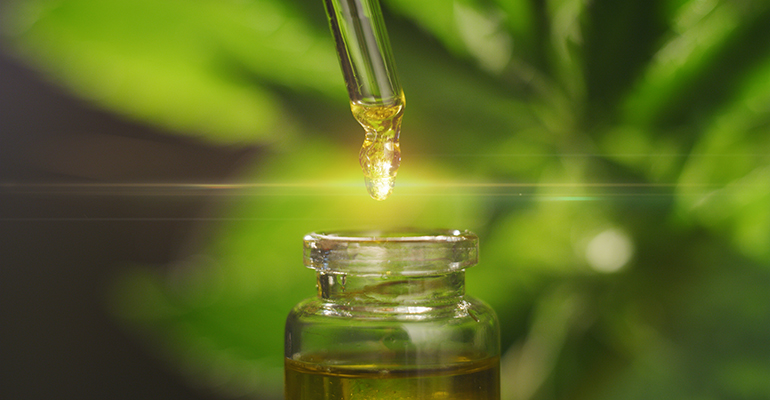News
CBD’s health halo will drive 2022 growth despite COVID-19 setbacks
14 Jun 2021Despite CBD being an indisputably on-trend ingredient, the US CBD market was not immune to the negative economic impacts of the COVID-19 pandemic last year, particularly due to nationwide store closures, new consumer priorities, and CBD price drops.
Nevertheless, the sector is still poised for stronger growth in the US throughout 2022, according to a recent report, 2021 Mid-Year US CBD Report, published by CBD specialists and market research company, the Brightfield Group.

“The industry has been rebounding ever since its fall in Q2 2020, but the landscape looks much different than before,” write Brightfield’s analysts.
A challenging landscape
“2019 saw thousands of CBD brands flood the market. The sheer number of brands became unsustainable during the pandemic, and those that could not compete were forced to drop out of the market. The most successful brands are those that effectively captured share of the e-commerce market. And this was no easy task. In the newly social-distanced world, brands aimed to gain new customers with deep discounts and large online advertising budgets.”
Nevertheless, this tactic alone did not translate to long-term growth and, according to Brightfield, no brand experienced significant increases in purchase growth from Q4 2020 to Q1 2021. Despite some notable exceptions, such as Charlotte’s Web and cbdMD, most brands experienced significant declines in purchase growth, with brand loyalty stagnating.
Many consumers switched seamlessly to online sales due to store closures but this did not make up for the loss in ‘discovery’ purchases; consumers who chance upon CBD products while shopping for other products, it notes. Additionally, while bricks-and-mortar stores have reopened in many states, wary consumers are spending less time browsing shelves.
Wellness NPD will raise growth potential
Nevertheless, its takeaway message is that the CBD industry is poised for stronger growth in 2022 with CBD discovery and spontaneous purchases picking up in retail channels once consumers feel comfortable shopping in-store.
“With consumers returning to brick and mortar as the pandemic ends and disposable income going up, the CBD market is expected to see a lift through the end of the year for the brands that have survived the pandemic,” they say.
“With regulatory guidance expected towards the end of 2021 to early 2022, expect to see explosive growth through brick and mortar as ingestible products hit shelves of chain retailers around the country. Now is the time to build strong brands across industries to ensure success when competition increases.”
Functional ingredient blends can tap the wellness trend
Cannabidiol’s association with wellness, relaxation and stress management may also drive consumer interest going forward. The COVID-19 virus is still in circulation, generating feelings of uncertainty and health vulnerability. Brightfield recommends brands continue with product development to increase growth potential, particularly tapping into the trend of blending CBD with other functional ingredients.
Blends of CBD and well-established or trending functional ingredients such as curcumin, botanicals or emerging adaptogens, are increasingly being used to capture wider consumer appeal, says Brightfield, which based its findings on market research and a quarterly survey featuring a census-balanced sample of 5,000 unique CBD users in the US.
The strategy of blending functional ingredients also has a significant practical benefit for manufacturers because it enables health claims. Brands are not authorised to say CBD helps with sleep, for instance, but they can say that their product containing melatonin and CBD helps with sleep.
Nutrition brand Garden of Life makes ‘Inflammatory Response’ soft gels that each contain 15 mg of whole hemp-extracted CBD and 50 mg of curcuminoids.
Consumer interest in minor cannabinoids, such as cannabigerol (CBG) and cannabinol (CBN) will also continue to rise throughout 2021 and 2022, predicts Brightfield. The cannabis plant contains over 120 known cannabinoids and scientists are discovering more about each one, including how they interact with each other beneficially. Cannabinol, for example, is often posited as a sleep aid and some of the major CBD brands have begun to incorporate these minor cannabinoids into products.
Science-based information to raise awareness
A continued barrier to uptake of CBD is its association with illegal drugs and the unfounded perception it contains psychoactive substances.
Brightfield’s research reveals that 17% of consumers not open to trying CBD say this is because they do not want to get ‘high’ (even though this is not possible) and another 16% believe CBD does not work.
Providing science-based information about CBD’s health benefits and its absence of psychoactive molecules are essential.
“Countering misconceptions with approachable information on CBD could help convert non-believers into potential users or prevent people from adopting incorrect beliefs all together,” write Brightfield analysts. “Eighteen percent of consumers not using CBD today openly admit they do not know enough about CBD products. Education on product types and use cases is key in educating younger generations to increase usage, help with CBD penetration, and hopefully increase spend over time.”
